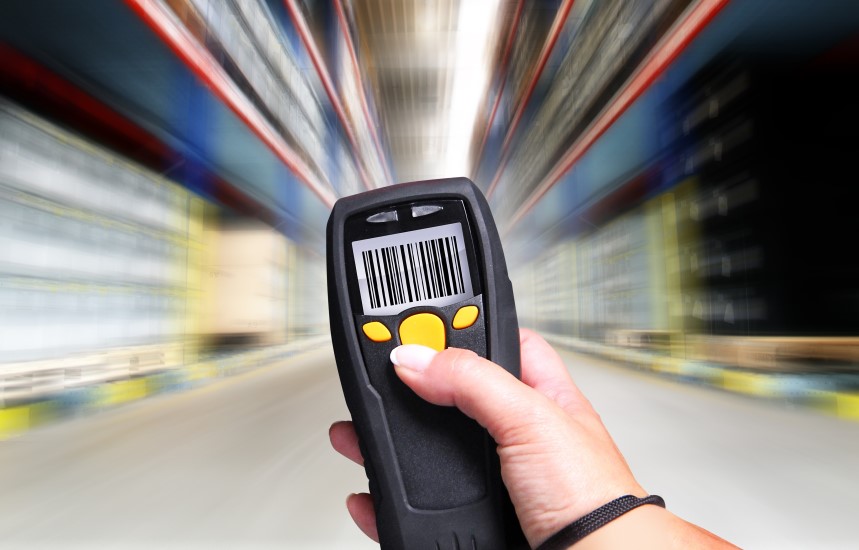Heavy-Duty Barcodes Scanners Built for Commercial Needs
Heavy-Duty Barcodes Scanners Built for Commercial Needs
Blog Article
Picking the Right Barcode Scanner for Your Organization Requirements
Picking the appropriate barcode scanner for your business calls for a nuanced understanding of your specific functional requirements and environmental conditions. Factors such as scanner kind, rate, and compatibility with existing systems play a crucial role in establishing the best selection. Furthermore, considerations around sturdiness, connection, and the complete expense of ownership can substantially affect long-lasting performance. Understanding these components is crucial, yet many services neglect crucial aspects that could affect their general productivity. The following action in this procedure can make all the difference for your procedures.
Recognizing Barcode Scanner Types
When it comes to selecting a barcode scanner, comprehending the different kinds offered is essential for meeting certain business requirements. Barcode scanners can be classified into a number of kinds, each created for various applications and atmospheres.
Fixed-mount scanners, on the other hand, are made for high-volume scanning applications, frequently discovered in assembly lines or check out counters. These scanners are placed in a stationary placement, allowing for fast scanning of multiple products in sequence.
One more kind is the mobile computer system, which integrates scanning abilities with computing power. These devices are excellent for field operations or stockroom monitoring, making it possible for data collection and real-time inventory tracking. Furthermore, there are industrial scanners that are built to stand up to rough atmospheres, such as extreme temperatures or direct exposure to dirt and moisture.

Trick Functions to Take Into Consideration
What crucial functions should services prioritize when selecting a barcode scanner? Scanning speed is critical, as faster scanners improve functional efficiency, especially in high-volume atmospheres. The scanner's capacity to read different barcode layouts is likewise essential; ensure it supports popular types like QR codes, UPC, and Code 128 to suit diverse inventory products.
Sturdiness is an additional key attribute, specifically for organizations in rugged settings. Seek models that are constructed to stand up to declines, dust, and wetness. Furthermore, consider the connectivity options readily available; whether you like USB, Bluetooth, or Wi-Fi, the right connection can improve assimilation with existing systems.

Examining Your Service Atmosphere
To efficiently pick a barcode scanner, services need to analyze their specific operational click over here setting. This evaluation consists of assessing the physical format of the work area, the nature of the items being scanned, and the normal problems under which scanning happens. For circumstances, a retail setting may need handheld scanners that can rapidly refine transactions at the checkout, while a storehouse setup could gain from ruggedized scanners created to withstand harsher problems.
Additionally, think about the volume of scanning called for. High-throughput atmospheres might necessitate advanced scanning technologies, such as fixed-position scanners or mobile devices that can run effectively in hectic scenarios. The combination abilities with existing supply monitoring systems likewise play an important duty; ensure the picked scanner can perfectly link with software program platforms in usage.
Additionally, analyze the possibility for growth and scalability. A scanner that meets current needs could not be adequate as business expands. By completely examining these aspects, companies can choose a barcode scanner that not only meets prompt needs but additionally supports lasting functional effectiveness and versatility. This critical strategy inevitably adds to smoother processes and boosted productivity.
Budgeting for Your Scanner
Having actually assessed the functional setting and determined the specific needs for a barcode scanner, the following step involves mindful budgeting to guarantee a smart financial investment. Establishing a spending plan starts with determining the total prices connected with the scanner, including first acquisition price, functional costs, and potential upkeep costs.
When picking a barcode scanner, think about the range of available choices, from portable devices to fixed-position scanners, as rates can differ substantially. It is crucial to stabilize expense with performance; going with a much more budget friendly design might result in increased operational inadequacies if it does not meet your service needs.
In enhancement to the hardware, consider expenses associated with software application, training, and potential upgrades. While it could be alluring to reduce upfront expense, buying a quality scanner that lines up with your operational requirements can yield long-term savings with boosted effectiveness and lowered downtime.
Finally, consider the complete cost of possession, which encompasses the scanner's life expectancy and prospective resale worth. By carefully preparing your spending plan, you can make sure news that your investment in a barcode scanner will enhance your operational efficiency and financial performance.
Combination With Existing Systems
Integrating a barcode scanner with your existing systems is critical for maximizing its performance and guaranteeing seamless operations. barcodes scanners. A well-integrated scanner enhances process performance, reduces mistakes, and accelerates information processing. When choosing a barcode scanner, consider compatibility with your present software and equipment framework, including your inventory management systems, point-of-sale (POS) systems, and enterprise source preparation (ERP) options
Review whether the scanner utilizes typical methods such as USB, Bluetooth, or Wi-Fi, which can promote simple combination. Furthermore, assess whether the scanner's software program offers APIs or SDKs that permit modification and combination with exclusive systems. This is specifically vital for businesses with special functional requirements.
As your organization grows, your systems need to be able to fit added scanners and deal with boosted information volumes without considerable reconfiguration. Ultimately, investing in a barcode scanner that flawlessly integrates with your existing systems will certainly yield long-lasting advantages, enhancing precision, performance, and general productivity within your operations.

Conclusion
In final thought, selecting an appropriate barcode scanner necessitates a comprehensive evaluation of various variables, including scanner kinds, crucial features, and the specific service setting. The ideal barcode scanner serves as an essential tool in streamlining procedures and facilitating reliable stock monitoring.
Report this page